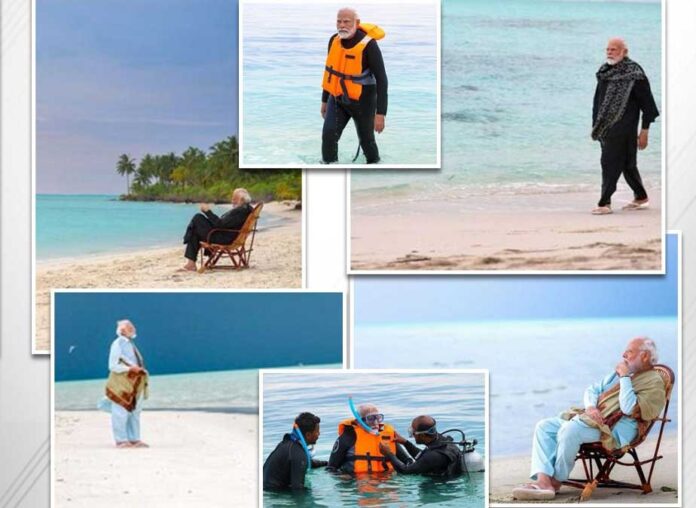In an era where social media’s influence permeates every facet of life, diplomacy is not immune to its tumultuous waves.
The recent India-Maldives spat underscores this new reality, revealing the fragility of international relations in the digital age. The unwarranted comments from certain Maldivian officials, symptomatic of deeper tensions, have sparked a social media frenzy, demonstrating how quickly diplomatic relations can sour in the public eye.
Prime Minister Narendra Modi’s Lakshadweep visit, intended to inaugurate developmental projects, inadvertently became a flashpoint. His leisure activities, widely shared on social media, were misconstrued in the Maldives as a tactical move to promote Lakshadweep as a rival tourist destination. This misinterpretation, leading to derogatory remarks against Indians and the Prime Minister, has ignited a strong backlash in India, with the hashtag #BoycottMaldives trending and tangible impacts like cancelled travel plans.
This digital uproar prompted swift government action, with both countries summoning each other’s diplomats. The Maldivian government’s suspension of the officials responsible for the offensive posts and its acknowledgment of the inappropriateness of these comments indicate an awareness of the diplomatic misstep. However, this incident is merely a symptom of a larger ailment affecting India-Maldives relations.
The ascent of President Mohamed Muizzu, known for his ‘India out’ campaign and anti-India rhetoric, has destabilized the traditionally cordial relationship between the two countries. His foreign visits and decisions, such as the non-renewal of an agreement for hydrographic surveys by India, reflect a significant shift in Maldives’ foreign policy. This growing divergence presents a challenge not only to bilateral ties but also to regional stability, as South Asian states constantly juggle their relations with regional powers like India and China.
Despite the current strain, history shows that India has been an indispensable security and economic partner for the Maldives. India’s role in bolstering the Maldives’ maritime surveillance capabilities and its status as a major trade partner and tourist source cannot be overlooked. This interdependence calls for a diplomatic recalibration, respecting mutual sensitivities and establishing clear boundaries.
The India-Maldives rift is a stark reminder of the delicate nature of international relations in a socially connected world. It highlights the need for careful diplomatic engagement, especially in a region as strategically significant as the Indian Ocean. For both New Delhi and Male, acknowledging and respecting each other’s critical roles in the region is not just a diplomatic geopolitical imperative.










